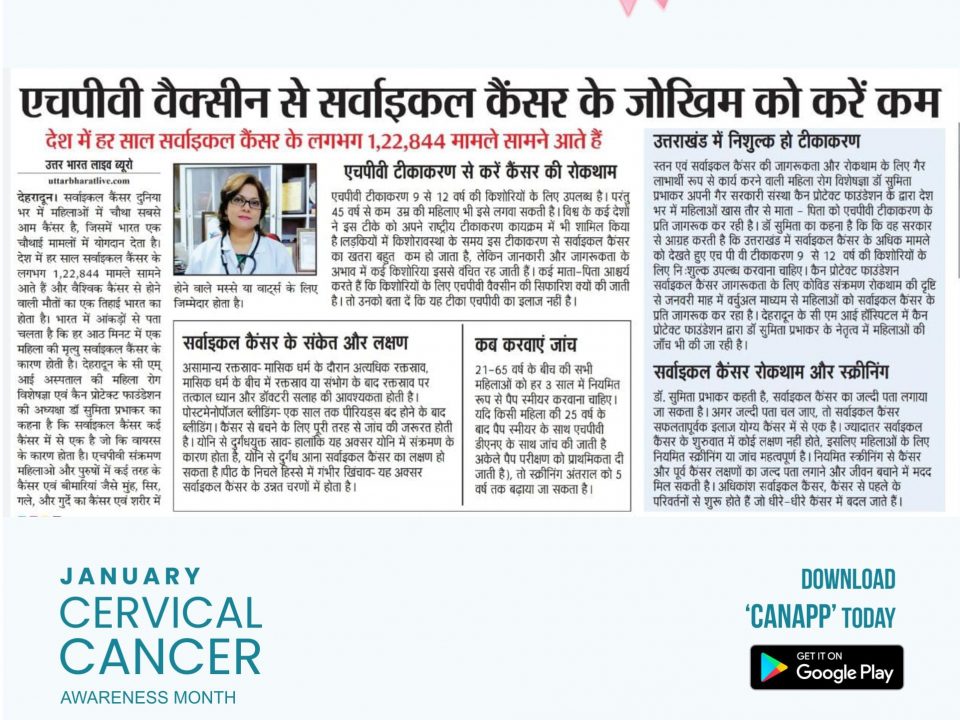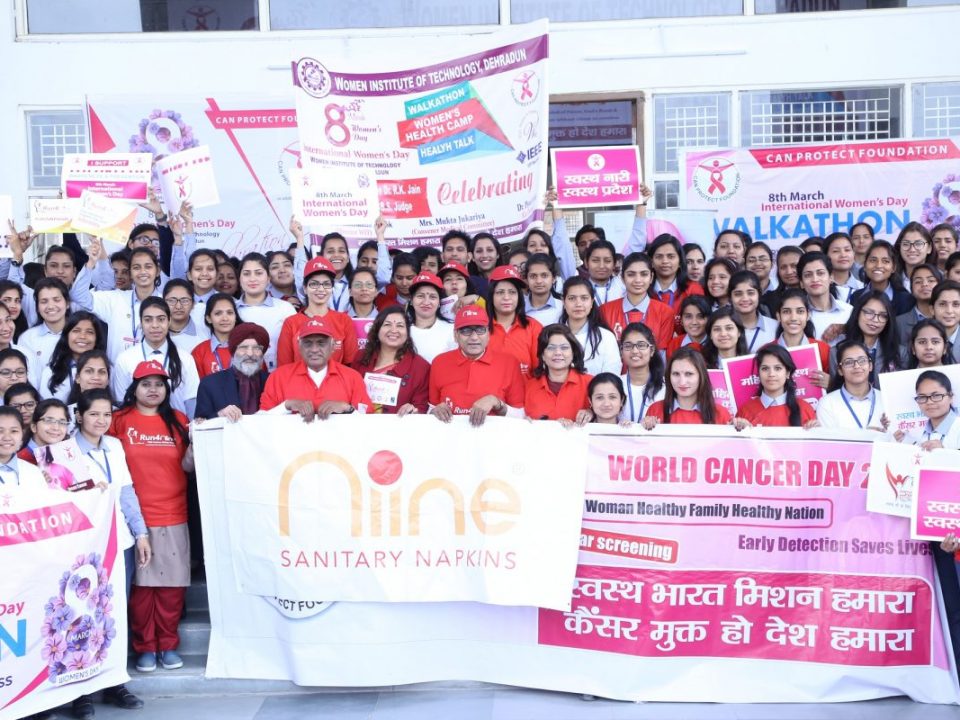Understanding Breast Cancer: Signs, Symptoms, and Ways to Reduce Your Risk

Laser and Aesthetic Gynae Training: Empowering Doctors to Provide Quality Care
December 20, 2022
Dr. Sumita Prabhakar Empowers Women’s Health at “Hum Mahilayen” Conclave in Uttarakhand
June 18, 2023Understanding Breast Cancer: Signs, Symptoms, and Ways to Reduce Your Risk
What is breast cancer?
Breast cancer is a disease in which malignant (cancer) cells form in the tissues of the breast. It is the most common type of cancer in women, although it can also occur in men. Risk factors for breast cancer include age, family history, certain genetic mutations, and lifestyle factors such as alcohol consumption and obesity. Treatment for breast cancer typically includes surgery, chemotherapy, radiation, and hormone therapy.
Signs and symptoms of breast cancer
Signs and symptoms of breast cancer may include:
– A lump or thickening in or near the breast or in the underarm area
– Changes to the skin on the breast, such as dimpling, puckering, redness, or scaling
– Nipple discharge or inversion
– A change in the size or shape of the breast
– Swelling of all or part of the breast
– Pain in the breast or the armpit
– Peeling, flaking, or scaling of the skin on the breast or nipple
– Itchy, scaly, or crusty nipples
– Unexplained fatigue
When to see a doctor
It is important to talk to your doctor if you notice any changes in your breasts. Your doctor can examine you and recommend further testing if necessary.
Causes of Breast Cancer
The exact cause of breast cancer is unknown, but certain factors may increase your risk, including:
– Age – the risk increases with age
– Family history – having a first-degree relative (parent, sibling, or child) with breast cancer increases the risk
– Genetic mutations – certain genetic mutations, such as BRCA1 and BRCA2, can increase the risk
– Previous radiation exposure – having radiation therapy to the chest or breasts increases the risk
– Personal history of breast cancer – having had breast cancer increases the risk
– Obesity – having a body mass index (BMI) of 30 or higher increases the risk
– Alcohol use – drinking alcohol increases the risk
– Hormone use – long-term use of oral contraceptives or hormone replacement therapy increases the risk.
Inherited breast cancer
In some cases, breast cancer is caused by inherited genetic mutations. These mutations can be passed from parent to child and increase the risk of developing breast cancer. The most common inherited mutations are BRCA1 and BRCA2, which can dramatically increase the risk of breast cancer. If you have a family history of breast cancer, it is important to talk to your doctor about your risk and whether genetic testing is right for you.
Risk factors of Breast Cancer
The risk factors of breast cancer include:
– Age – the risk increases with age
– Family history – having a first-degree relative (parent, sibling, or child) with breast cancer increases the risk
– Genetic mutations – certain genetic mutations, such as BRCA1 and BRCA2, can increase the risk
– Previous radiation exposure – having radiation therapy to the chest or breasts increases the risk
– Personal history of breast cancer – having had breast cancer increases the risk
– Obesity – having a body mass index (BMI) of 30 or higher increases the risk
– Alcohol use – drinking alcohol increases the risk
– Hormone use – long-term use of oral contraceptives or hormone replacement therapy increases the risk.
Breast cancer risk reduction for women with an average risk
Women with an average risk of breast cancer can reduce their risk by taking the following steps:
– Maintaining a healthy weight
– Eating a healthy, balanced diet
– Exercising regularly
– Limiting alcohol consumption
– Avoiding smoking
– Getting regular screenings, such as mammograms
– Talking to their doctor about their risk and if they should consider genetic testing
– Discussing any medications or supplements they may be taking with their doctor
– Breastfeeding, if possible




